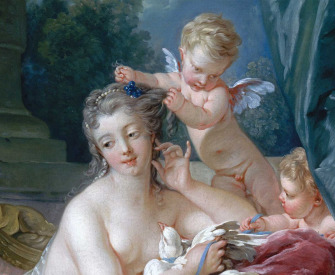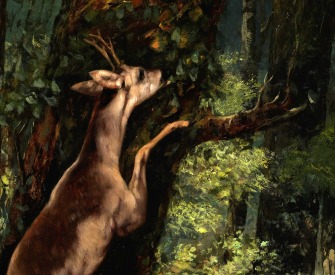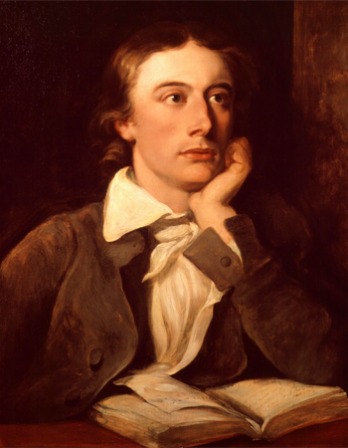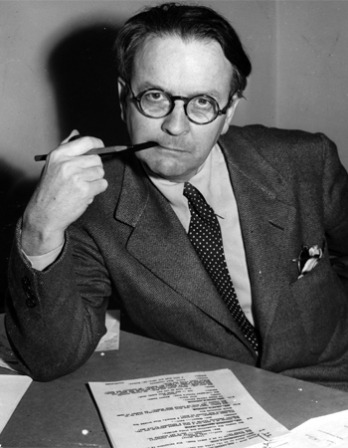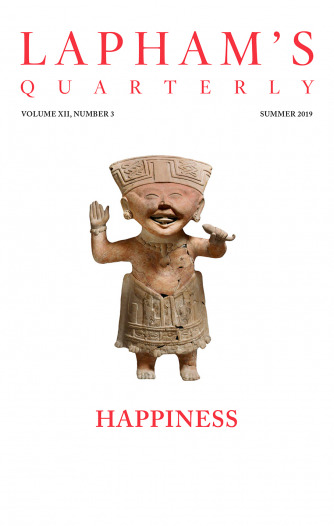Blessed are the young, for they shall inherit the national debt.
—Herbert Hoover, 1936Golden Days
Oscar Wilde on the only thing that matters.
“Let us go and sit in the shade,” said Lord Henry. “Parker has brought out the drinks, and if you stay any longer in this glare you will be quite spoiled, and Basil will never paint you again. You really must not allow yourself to become sunburned. It would be unbecoming.”
“What can it matter?” cried Dorian Gray laughing, as he sat down on the seat at the end of the garden.
“It should matter everything to you, Mr. Gray.”
“Why?”
“Because you have the most marvelous youth, and youth is the one thing worth having.”
“I don’t feel that, Lord Henry.”
“No, you don’t feel it now. Someday, when you are old and wrinkled and ugly, when thought has seared your forehead with its lines, and passion branded your lips with its hideous fires, you will feel it terribly. Now, wherever you go, you charm the world. Will it always be so?…You have a wonderfully beautiful face, Mr. Gray. Don’t frown. And beauty is a form of genius—is higher, indeed, than genius, as it needs no explanation. It is of the great facts of the world, like sunlight, or springtime, or the reflection in dark waters of that silver shell we call the moon. It cannot be questioned. It has its divine right of sovereignty. It makes princes of those who have it. You smile? Ah! When you have lost it you won’t smile…Yes, Mr. Gray, the gods have been good to you. But what the gods give they quickly take away. You have only a few years in which to live really, perfectly, and fully. When your youth goes, your beauty will go with it, and then you will suddenly discover that there are no triumphs left for you, or have to content yourself with those mean triumphs that the memory of your past will make more bitter than defeats. Every month as it wanes brings you nearer to something dreadful. Time is jealous of you, and wars against your lilies and your roses. You will become sallow, and hollow cheeked, and dull eyed. You will suffer horribly…Ah! Realize your youth while you have it. Don’t squander the gold of your days listening to the tedious, trying to improve the hopeless failure, or giving away your life to the ignorant, the common, and the vulgar. These are the sickly aims, the false ideas, of our age. Live! Live the wonderful life that is in you! Let nothing be lost upon you. Be always searching for new sensations. Be afraid of nothing…A new hedonism—that is what our century wants. You might be its visible symbol. With your personality there is nothing you could not do. The world belongs to you for a season…The moment I met you I saw that you were quite unconscious of what you really are, of what you really might be. There was so much in you that charmed me that I felt I must tell you something about yourself. I thought how tragic it would be if you were wasted. For there is such a little time that your youth will last—such a little time. The common hill flowers wither, but they blossom again. The laburnum will be as yellow next June as it is now. In a month there will be purple stars on the clematis, and year after year the green night of its leaves will hold its purple stars. But we never get back our youth. The pulse of joy that beats in us at twenty becomes sluggish. Our limbs fail, our senses rot. We degenerate into hideous puppets, haunted by the memory of the passions of which we were too much afraid, and the exquisite temptations that we had not the courage to yield to. Youth! Youth! There is absolutely nothing in the world but youth!”
The Father’s Curse: The Ungrateful Son, by Jean-Baptiste Greuze, 1777. Louvre, Paris, France.
Dorian Gray listened, open-eyed and wondering. The spray of lilac he had been holding fell from his hand upon the gravel. A furry bee came and buzzed round it for a moment. Then it began to scramble all over the oval stellated globe of the tiny blossoms. He watched it with that strange interest in trivial things that we try to develop when things of high import make us afraid, or when we are stirred by some new emotion for which we cannot find expression, or when some thought that terrifies us lays sudden siege to the brain and calls on us to yield.
Suddenly Basil Hallward appeared at the door of the studio and made staccato signs for them to come in. They turned to each other and smiled.
“I am waiting,” he cried. “Do come in. The light is quite perfect, and you can bring your drinks.”
They rose up and sauntered down the walk together.
As they entered the studio, Lord Henry flung himself into a large wicker armchair and watched Dorian. The sweep and dash of the brush on the canvas made the only sound that broke the stillness, except when, now and then, Hallward stepped back to look at his work from a distance. In the slanting beams that streamed through the open doorway the dust danced and was golden. The heavy scent of the roses seemed to brood over everything.
After about a quarter of an hour Hallward stopped painting, looked for a long time at Dorian Gray, and then for a long time at the picture, biting the end of one of his huge brushes, and frowning. “It is quite finished,” he cried at last, and stooping down he wrote his name in long vermilion letters on the left-hand corner of the canvas.
Lord Henry came over and examined the picture. It was certainly a wonderful work of art, and a wonderful likeness as well.
“My dear fellow, I congratulate you most warmly,” he said. “It is the finest portrait of modern times. Mr. Gray, come over and look for yourself.”
The lad started, as if awakened from some dream. “Is it really finished?” he murmured, stepping down from the platform.
“Quite finished,” said the painter. “And you have sat splendidly today. I am awfully obliged to you.”
“That is entirely due to me,” broke in Lord Henry. “Isn’t it, Mr. Gray?”
Dorian made no answer, but passed listlessly in front of the picture and turned toward it. When he saw it he drew back, and his cheeks flushed for a moment with pleasure. A look of joy came into his eyes, as if he had recognized himself for the first time. He stood there motionless and in wonder, dimly conscious that Hallward was speaking to him, but not catching the meaning of his words. The sense of his own beauty came on him like a revelation. He had never felt it before. Basil Hallward’s compliments had seemed to him to be merely the charming exaggerations of friendship. He had listened to them, laughed at them, forgotten them. They had not influenced his nature. Then had come Lord Henry Wotton with his strange panegyric on youth, his terrible warning of its brevity. That had stirred him at the time, and now, as he stood gazing at the shadow of his own loveliness, the full reality of the description flashed across him. Yes, there would be a day when his face would be wrinkled and wizened, his eyes dim and colorless, the grace of his figure broken and deformed. The scarlet would pass away from his lips, and the gold steal from his hair.The life that was to make his soul would mar his body. He would become dreadful, hideous, and uncouth.
As he thought of it, a sharp pang of pain struck through him like a knife, and made each delicate fiber of his nature quiver. His eyes deepened into amethyst, and across them came a mist of tears. He felt as if a hand of ice had been laid upon his heart.
“How sad it is!” murmured Dorian Gray, with his eyes still fixed upon his own portrait. “How sad it is! I shall grow old, and horrible, and dreadful. But this picture will remain always young. It will never be the older than this particular day of June…If it were only the other way! If it were I who was to be always young, and the picture that was to grow old! For that—for that—I would give everything! Yes, there is nothing in the whole world I would not give! I would give my soul for that!”

Oscar Wilde
From The Picture of Dorian Gray. Wilde published this work, his only novel, in Lippincott’s Magazine in 1890, and critics attacked it on moral grounds, one saying that he wrote for “none but outlawed noblemen and perverted telegraph boys.” For its release in book form the following year, he revised it, adding a preface in which he wrote, “There is no such thing as a moral or an immoral book. Books are well written, or badly written. That is all.” Convicted of charges of gross indecency in 1895, Wilde was sentenced to two years of servitude with hard labor.
